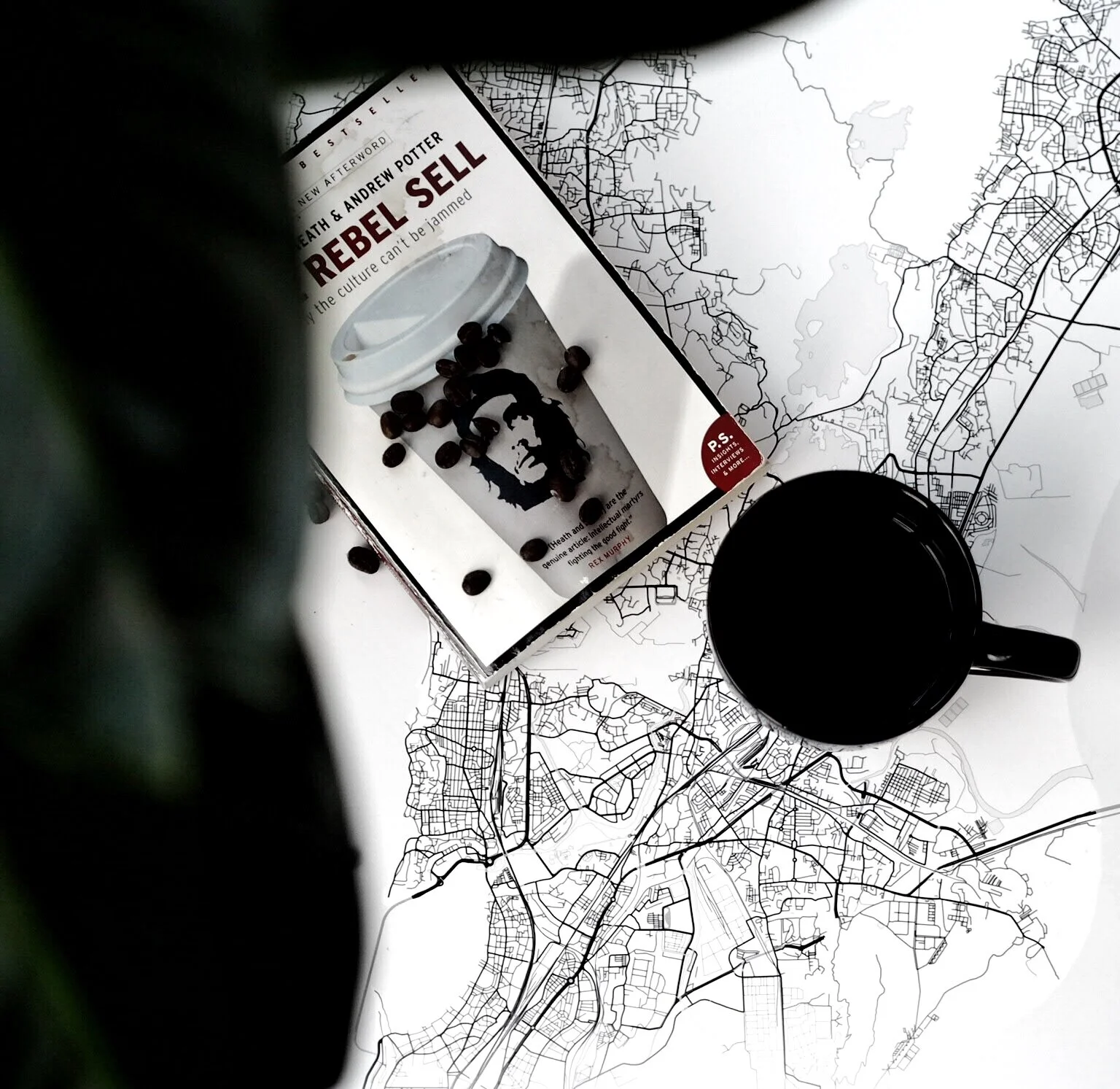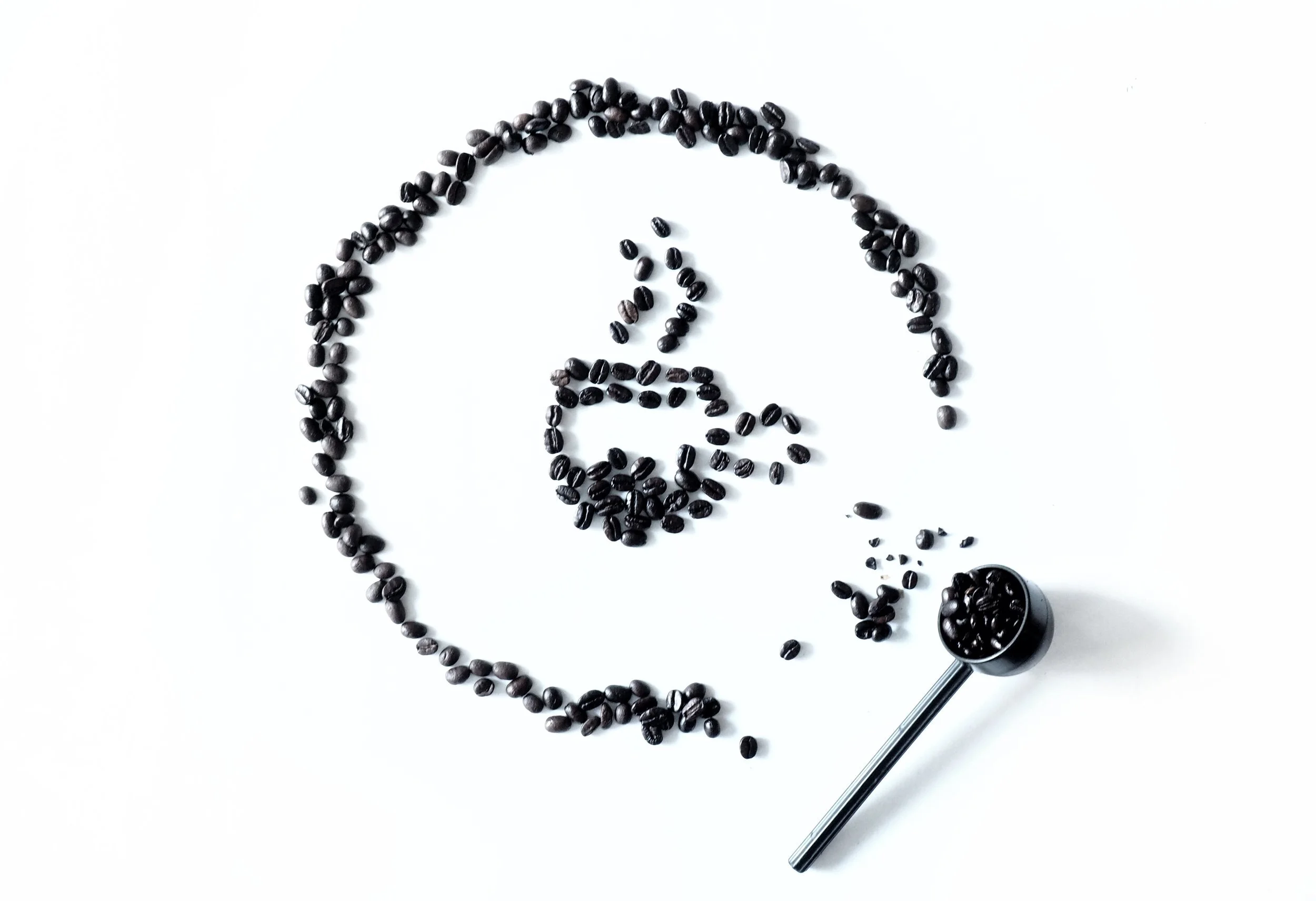Coffee's (R)evolution
The independent coffee shop - the natural habitat of the hipster. You know the ones: white walls, antique hammered-copper ceiling, dark wood and vintage iron accoutrements. Or, perhaps it's going for a more modern look: clean stainless steel and glass, marble bistro tables, and a simple picture frame proclaiming "keep calm and drink coffee". The baristas sport interchangeable outfits of vintage finds, visible tattoos, and perhaps a spacer or two. Their coffee is single-origin, fair-trade, ethically-sourced, and available for your drinking pleasure prepared from a $20,000, custom-made espresso machine.
It's perfect Instagram material; a phrase in itself that goes to show just how far the once-alternative hipster culture has come to mainstream. This is a good thing for foodies; never has it been easier to explore the effects of different origins, roasts, and brewing techniques in the city. But we can already see the facade of hipster culture crack under the pressure of mainstream acceptance; could this new 'third wave' of coffee culture share the same fate? Doomed to a commercial weakening of its essence?
Coffee is one of the rare foods that is immune to the ebb and flow of cultural approval
This fear would be true if coffee were simply a trendy food - like cronuts, cake pops, and bacon everything. But coffee is one of the rare foods that is immune to the ebb and flow of cultural approval. In fact, coffee has interchangeably served as a symbol for culture and counter-culture - sometimes simultaneously. Since its discovery, coffee has remained entwined with cultural progress.
In the early years of coffee consumption, the dark bean was synonymous with political dissent. Where beer - once consumed from sunup to sundown - inebriated, coffee had the exact opposite effect. This was particularly troubling for ruling monarchs of the day; congregation of sober masses does not lend well to autocratic rule.
Perhaps the greatest embodiment of coffee's role in rebellion is in the American Revolution. Following the Boston Tea Party in 1773, to drink coffee was to show independence. It wasn't just that pivotal moment; coffeehouses across Boston served as clandestine meeting spots for those plotting the move to Independence.
On the other side of the world a hundred years earlier, drinking coffee bore greater consequences than caffeine jitters; in 17th century Ottoman Empire, coffee drinking was a crime punishable by beheading. In spite of this, coffee culture remained alive, with men congregating to get their fix of caffeine and elevated conversation in underground speakeasies.
The dark bean was synonymous with political dissent
The English monarchy attempted to issue a similar ban on coffee during this time, as well. King Charles II issued a decree banning coffeehouses after tracing the roots of a poem with treasonous undertones to them. The backlash from his subjects was so great that his order was rescinded after just eleven days.
As much as coffee was a symbol for dissent, following the two World Wars, coffee became a symbol of stability. In the wake of unsteady peace, food manufacturers found themselves with massive production capacity intended to provide shelf-stable food to soldiers abroad, but with no war. Instant coffee - a staple in trench rations and G.I. kits - came home with the soldiers, targeting a returning workforce accustomed to its taste.
Nescafé instant coffee is one of the category killers that emerged in the inter-war period as a brand supplied to Allied troops. Curiously for a country synonymous with high-end cuisine, an authentic French café au lait is made with Nescafé; it's a taste that has remained in the country since that point.
In just two hundred years, coffee had evolved from a drink capable of inspiring treasonous thought to a cup of (G.I.) Joe. When the '70s Hippie Love movement decried the influence of a military-industrial complex, coffee stood contrary to the counter-culture movement.
It's fitting that the next symbol for coffee culture shares a common birthplace with grunge music. Starbucks began as a small shop in Seattle's Pike Place market, selling roasted beans rather than prepared coffee. The original business idea is similar to that of boutique roasters today; better roasting techniques and a steady supply chain that allows for the sourcing of single origin beans make for better coffee with greater clarity of flavour.
The chain was hip for its time; it ran contrary to norms to pay the premium for better coffee. Why spend the extra cash when cheaper coffee could be found at diners or at home? Caffeine was caffeine.
Many credit Starbucks for ushering in a 'second wave' of coffee culture by giving people a new 'third place' between work and home where coffee drinkers could meet and enjoy a cup. It's an odd statement, particularly after writing about how coffee and coffeehouses played a vital part as meeting places for public discourse in much of the Old World. There are anecdotes of English coffeehouses in the 1800s playing the role of 'third place' so well that mail was often sent to the coffeehouses people frequented, rather than at home.
Instead, the success of Starbucks is perhaps more akin to a leapfrog effect of coffeehouse culture in America. It's an economic revolution in its own right, paving the way for mainstream acceptance of coffeehouses.
Now, Starbucks has fallen victim to its own mainstream appeal. It's no longer an independent chain with a fresh idea on coffee consumption; it lost that status with the ubiquity of its locations. And, in the eyes of food culture, Starbucks no longer serves truly good coffee. Now, it serves pumpkin spice lattes for mainstream, 'basic' consumption.
Today the upstart of the coffee world is the independent coffee shop, born out of equal parts dissatisfaction with mainstream consumerist culture and commercial competitive differentiation.
The original business idea is similar to that of boutique roasters today
The rise of artisan coffee isn't just being driven by a connected awareness of good food; it's being driven by the rise of the artisan. Vintage finds and intricate sleeve tattoos aren't a simple cry for difference. They're the hallmarks of a subculture that are enjoying increasing prominence: independent workers contributing to a new era of creative industries, from artistic to programming.
In an economic sense, man-buns and elaborate coffee brewing gadgets signify the latest revolution - the birth of the gig economy. It's now possible to accomplish most work free from the constraints of a cubicle. It's now possible for niche creations to reach critical volume for commercial success. And at the intersection of corporate and independent work is the hipster coffee bar, which serves as a physical meeting point for like minded individuals - and an access point to a greater, digital, venue: the Internet.
What will the independent coffee shop look like once it has been fully engulfed by mainstream culture? And what will take its place? That remains to be seen. But what is certain is that coffee will continue to be a symbol, and fuel, of change for years to come.
Words by Nicholas Wong. Photos by Abhishek Dekate.

